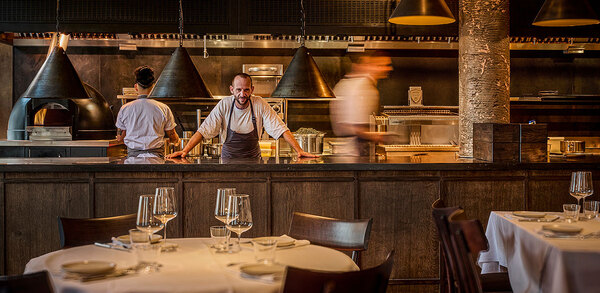Study reveals a third of chefs serve meat ‘on the turn'
A study of over 200 chefs has revealed a third of chefs had worked in kitchens which served meat which is no longer fresh, or spoiled.
Plos One yesterday.
The project aims to determine the causes of food poisoning, particularly in connection with Campylobacter, a bacterium found in undercooked barbeque chicken. The research exposed 16% of chefs said they had served barbecue chicken when they werenât sure if it was fully cooked.
Food poisoning outbreaks have also been credited to the chefs returning to work too soon after suffering from diarrhoea and vomiting. Over 30% of respondents said they had worked in a kitchen within 48 hours of suffering from a diarrhoeal disease.
In 2009, Heston Blumenthal's Fat Duck restaurant was hit by a food poisoning outbreak where over 500 people had gastroenteritis. It was linked to contaminated oysters after being handling of food by six infected members of staff.
The outbreak led a change in the Food Standards Agency guidance regarding the management of staff illness. However the research found that 28% of chefs working in a restaurant that had received an accolade or award were more likely to have returned to work within 48 hours of suffering from diarrhoea and vomiting.
It also found that 7.4% did not always wash their hands immediately after handling raw meat, poultry or fish. The probability of washing hands after handling meat and fish was increased by 18% if the chef was working in a fine-dining establishment.
The four behavioural statements presented to chefs and catering students were: "I always wash my hands immediately after handling raw meat, poultry or fish"; "I have worked in a kitchen within 48 hours of suffering from diarrhoea and/or vomiting"; "I have worked in a kitchen where meat that is âon the turnâ has been served"; and "I have served chicken at a barbecue when I wasnât totally sure that it was fully cooked."
Professor Dan Rigby from the University of Manchester, one of the lead authors of the study, said: âFoodborne illnesses impose a huge burden to the UK population, and these results indicate a high prevalence of behaviours which can give people food poisoning. Masking the smell and taste of meat on the turn is an old industry trick, and the ability to do it means restaurants can cut costs. Showing you can do it shows a potential employer you are experienced in the industry.
âIt is notable that chefs in fine dining establishments were more likely to have returned to work too soon after suffering diarrhoea and/or vomiting, contravening UK regulations - this may be that fear of losing a prestigious job, or a desire not to let the team down, is causing people to not to stay away for long enough, putting the public at risk.â
Fat Duck rejects claims it reacted slowly to norovirus outbreak >>
Heston Blumenthal gets £200,000 compensation for business lost to norovirus scare >>
thecaterer.com%2Farticles%2F500028%2Fmark-selby-wahaca-norovirus-outbreak-was-a-life-changing-experience%C3%A2%C2%80%C2%9D"> Mark Selby: Wahaca norovirus outbreak was a life changing experience >>
Videos from The Caterer archives

















